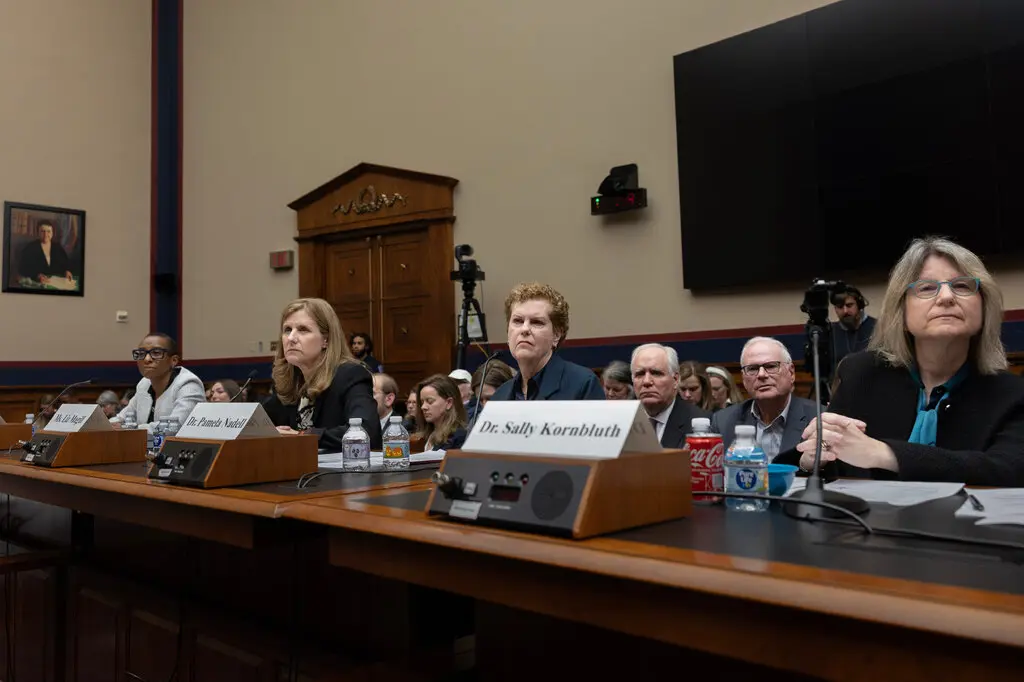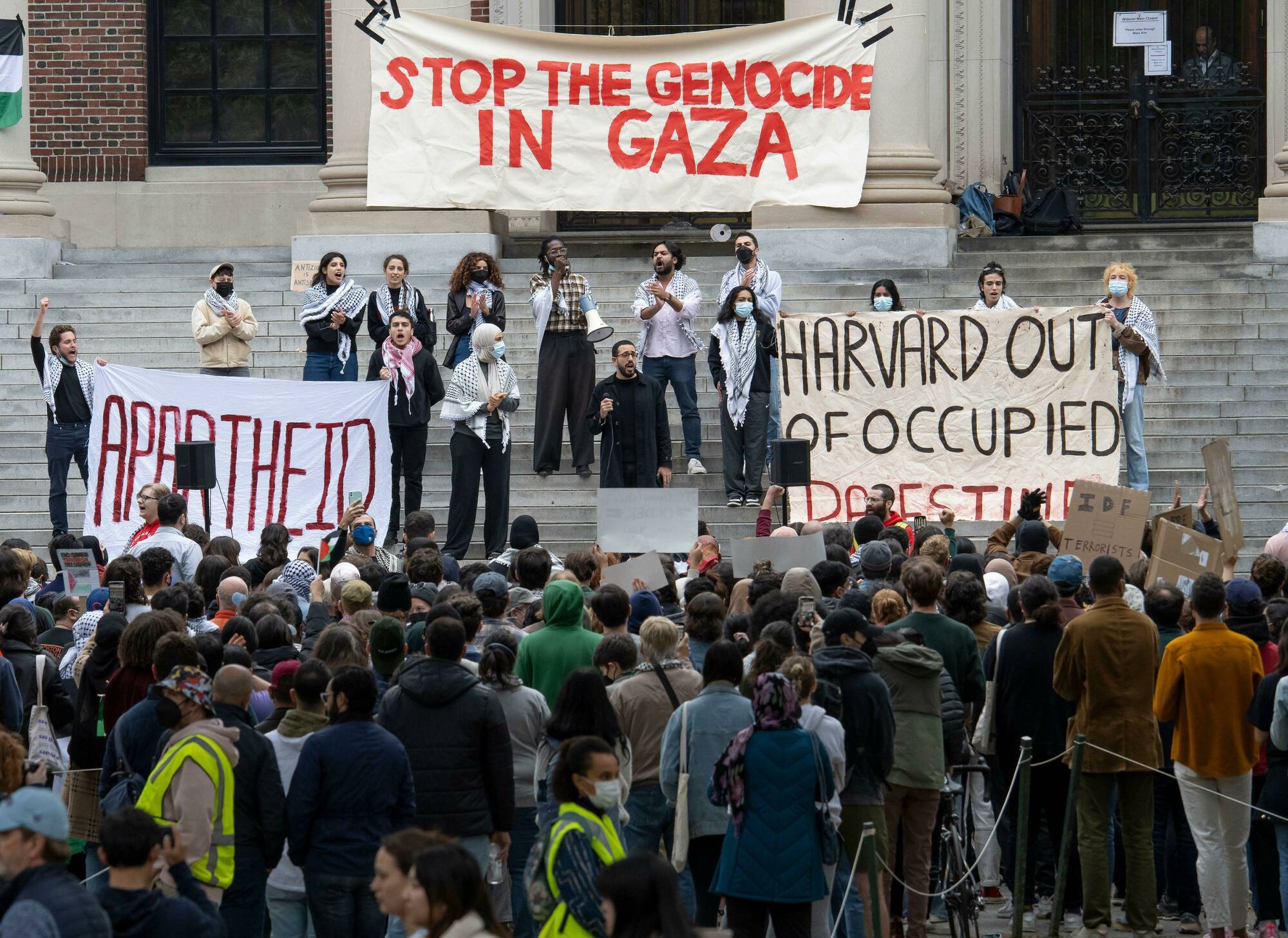By Dimitris Kouvaras,
It’s been well over a century since John Stuart Mill published the radical work to which my article’s title hints, and which you might have already identified if you have ever attended a philosophy class. It is no difficult thing to guess the content of “On Liberty,” a pioneering work on the issue of personal freedoms and especially that of expression. Having a look at recent developments, including the escalating tensions at universities in the US regarding the Palestinian Issue, which involved anything from demonstrations to mentions of hate speech and retaliation efforts by institutional and economic stakeholders, it becomes accordingly easy to acknowledge how timely discussions over Mill’s topics remain. Reactions to pro-Palestine opinions on university campuses—some of which are more radical and ambiguous than others—have created concerns over whether the very notion of freedom of expression in those environments is anything more than a rhetorical bluff.
A third unsurprising element is that tensions of this extent have only risen in the US, at least as far as the academic and university communities are concerned. A quick look at American history could attest to a multitude of similarly paradoxical correlations regarding freedom in all its forms, limits, and holders. The US has been hailed as “the land of the free” since Francis Scott Key’s poem of 1814, inspired by resistance against the British and, in turn, inspiring the national anthem, which Americans have solemnly sung ever since. However, this is the same land that fostered legal slavery until 1865, saw discrimination based on race as acceptable until the second half of the 20th century, and implemented ideologically intrusive and coercive policies such as McCarthyism. Freedom was not good for all, despite its rhetorical importance as a pillar of American national identity.

At present, yet another paradox has appeared, this time at the heart of the American academic community, including some of the country’s most prominent universities. The cause was no other than the Israeli-Palestinian conflict, whose history I have covered in a past article. In some of the most recognizable educational institutions in the US, students and academics have adopted a pro-Palestinian stance, which they have expressed verbally and actively through the organization of demonstrations and other activist initiatives. Flags and banners with daring rallying cries have flooded campuses, causing concern among those who see such developments as undermining US official policy on the issue or as a sign of antisemitism. What complicates the situation further is that the war on the Palestinian side is undertaken by Hamas, a radical militarist group lacking institutional legitimation and using unconventional means of warfare akin to terrorism, most often with alarming ruthlessness. Any support for it is therefore doomed to create controversy, if not to incite further scrutiny.
Universities have been under serious pressure to silence or restrict the groups advocating for Palestine, which are facing increasing scrutiny, most frequently based on arguments regarding the support of terrorism and the promotion of antisemitic rhetoric. Financial supporters have threatened to withdraw millions of dollars in terms of funding if unwanted voices persist, while the federal government has summoned the leaders of top universities in a congressional hearing on antisemitism, leading to the resignation of the president of the University of Pennsylvania. Statements provoking controversy and inviting concerns over the limits of free speech, especially by right-wing politicians, include the rallying cry “From the river to the sea, Palestine will be free,” as well as mentions of an alleged “genocide of the Jews.”. What is certain in this context is that, on the one hand, the extremity is, at least rhetorically, present also in the pro-Palestinian camp, and, on the other, such cries and slogans are interpreted literally and immediately in the institutional arena. As a result, freedom of speech on US campuses seems to be compromised or facing a serious threat.
The problematic situation behind these developments is multi-dimensional. It is exacerbated by the tendencies present in modern discourse, especially in political matters, which encourage polarisation by eschewing proper phrasing and accuracy in related statements and promoting provocative and generalist catchphrases instead. Thus, Palestine and Palestinians become confused with or assimilated to Hamas, and the Israeli right-wing government is equated to the general notion of “Jews.”. The US—a place that got someone like Trump elected president—provides ample fertile ground for such confusion, which in turn aggravates the paradox in question. It can be summed up like this: in an environment that is otherwise characterized by increased liberty, divergent political opinions are subject to censure and constraints. Albeit overwhelmingly open to plurality, for example, in terms of gender and sexual norms, US campuses cannot at the same time tolerate -let alone accept- someone who is openly opposing the official US foreign policy on a third-country affair.

This is a thought-provoking matter that points to the structural weaknesses of the American institutional, financial, and ideological setup. Ideologically, liberty lay at its cornerstone, though not as an intrinsic value. It gains relevance only insofar as it sustains and promotes the socioeconomic and political model of American republicanism in a capitalist context, as well as the notion of national interest. Hence, it is destined to be recognized only in instances that meet these prerequisites. The goal of systemic maintenance precedes unrestricted freedom of expression. Economically, high-calibre education is largely based on private funds, which, besides the ample opportunities, also create complications since academia is rendered dependent on the interests behind such funds. If a conflict of interest comes up, as is the case now, a dilemma appears since either freedom of expression or financial security must be compromised. From a political perspective, little room is left for criticism in matters of national policy, especially foreign affairs related to US strategic goals.
Presumably, Mill would have been disappointed were he able to observe the present situation unfolding. He would perhaps point to the fact that if education is tightly controlled by a potent stakeholder—be it a state authority or an economic interest group—its potential for awakening consciences and fostering essentially free thinking appears gloomy.
References
- John Stuart Mill, On Liberty, Kitchener, 2001. Available here
- “Israel-Gaza war on US campuses: Why are top university leaders under fire?”. Available here
- “Inside the Pro-Palestinian Group Protesting Across College Campuses”, The New York Times. Available here




